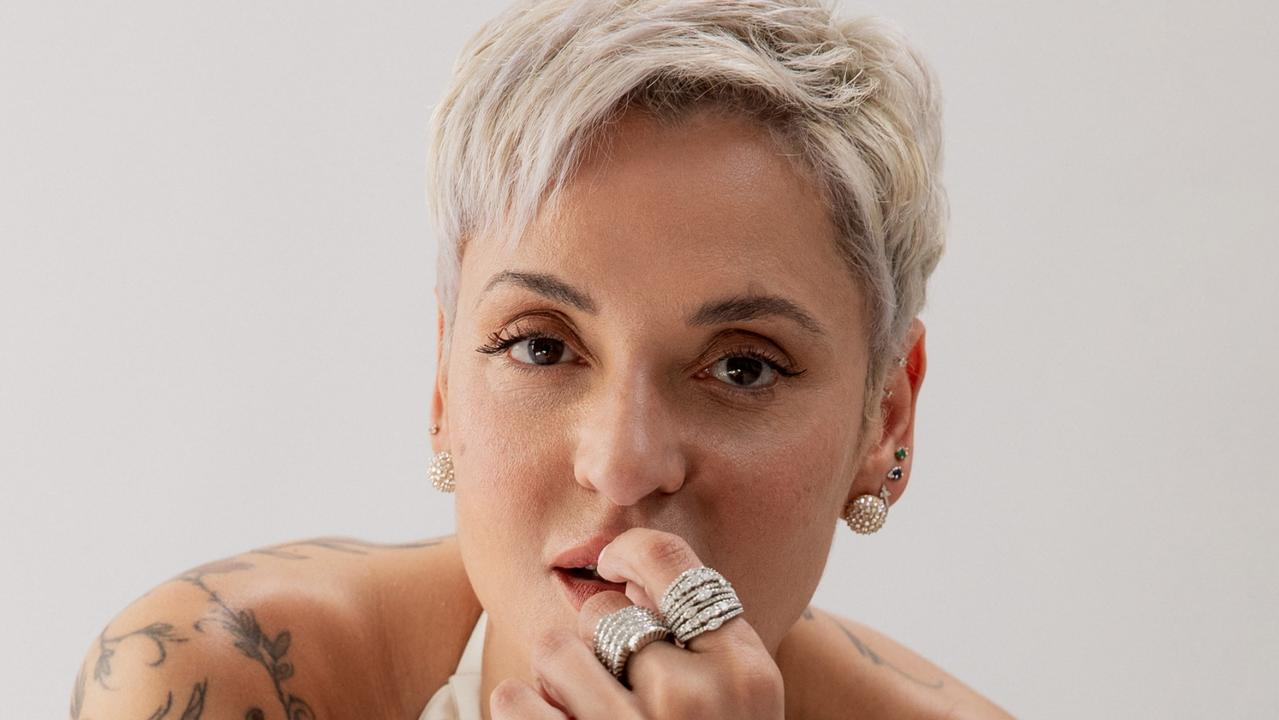Why Reese Witherspoon loves this brilliant, best-selling Adelaide author
The Dictionary of Lost Words by Pip Williams became one of the most successful Australian novels ever published. But this incredible achievement comes with a side of paralysing fear.
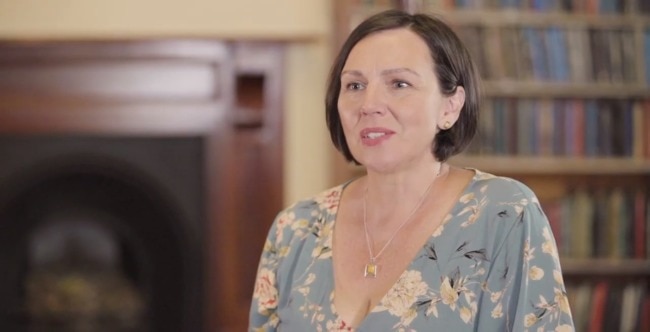
SA Weekend
Don't miss out on the headlines from SA Weekend. Followed categories will be added to My News.
It was easier for Pip Williams to avoid second-book syndrome – the paralysing fear of following up a smash hit – because she was already writing her second before The Dictionary of Lost Words came out.
She stays off social media and gave little thought to the expectations for The Bookbinder of Jericho, even though The Dictionary of Lost Words captured the public imagination and became a bestseller here and in the US.
“I was sheltered because of Covid and my life didn’t change one bit,” Williams says.
She kept her head down as The Dictionary of Lost Words gathered momentum in Australia, was released into the UK and in the US where Reese Witherspoon picked it up for her large and influential Book Club, catapulting it on to The New York Times bestseller list.
The book sold 300,000 copies in Australia, has been translated into 28 languages, a play is in the works and the screen rights were acquired late last year by respected local producers, Highview Productions’s Lisa Scott and Closer Productions Rebecca Summerton.
“I remember my publisher thought I was quite grounded, and that normally he would have had to talk an author down by now,” Williams says. “Particularly if their first book had done well, because they would be very anxious about the next one.”
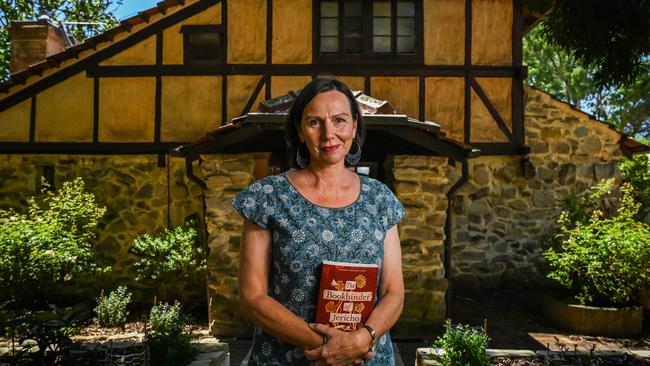
Her nerve held until July last year when the book was in its final stages.
Williams, a cautious person, doesn’t want to say she freaked out, but the knowledge it would soon be finished, and that it would be judged against the standards of the first, suddenly made her very, very nervous.
“My concern was that I would let people down, particularly as it was a companion book,” says Williams who still receives emails from people who loved The Dictionary of Lost Words and want her to know. “There was even more expectation that it would hold hands comfortably with the first book, which I know was important to some people.”
In The Dictionary of Lost Words, young Esme grows up spending a lot of time with her father in the Scriptorium where he is part of the team compiling the first Oxford English Dictionary. Esme gradually realises there are words missing, women’s words that the men give no weight to and do not include.
While Williams was researching this history in Oxford in 2019, she had begun to wonder about the lives of the bindery women who helped put books together.
With the help of the Oxford University Press archivist, she watched a short, silent film showing women at benches folding pages before they are gathered up to be bound and sewn.
“I wondered, do these women read the pages they are working with? They would have left school when they were 12 or 13 but that doesn’t mean they don’t have dreams and ambitions for something else,” Williams says.
“But at that time dreams and ambitions were quickly thwarted because there was no way you could move beyond your class, there were lots of barriers in their way.”
The women were handling some of the most significant works of religion and philosophy and theology from the early 20th century which were printed by Oxford University Press in the company town of Jericho, a then working-class suburb on Oxford’s outskirts.
“I just wondered, ‘What if that woman who is gathering the pages is like me and is curious and stops to read every now and again?’,” she says.
It was the beginning of her character Peggy, a working-class girl who is clever and ambitious and dreams of going to Oxford University to write books rather than bind them.
It is self-contained, although it overlaps with the first, and is set at the outbreak of World War I when most of the men left their jobs at the press to fight a war they thought would be over by Christmas.
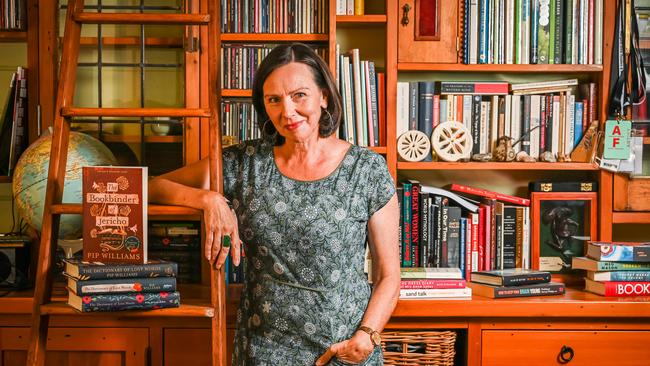
Williams is drawn to writing women into histories that have forgotten them – in her first book Esme and her maid Lizzie start compiling their own list of words the men had overlooked – but says she does not write with a feminist agenda.
“I am a feminist, proudly, but I don’t have an agenda in that I look for a story that is going to push a barrow,” she says.
“But I am interested in the lives of women, particularly at certain times in history. It’s not an agenda, it’s just the story of women.”
The time period for her books, the early 20th century, offers a rich setting.
The fierce battles for basic women’s rights, particularly the right to vote, were fought leading up to World War I but stalled as the toll of fighting shattered a generation of young men.
“When the war started, the suffragettes backed off because they realised they would get no sympathy at all when men were dying in the trenches,” Williams says.
“So, The Bookbinder has an undercurrent of women’s rights but it is not as overt as it was in the first book, because it wasn’t as overt at this time in history.”
What the war did was erode, at least temporarily, divisions over gender and class, so women could get jobs in munitions factories or, at the Oxford University Press, move into more responsible positions.
Instead of wearing skirts down to their ankles they were dressing in overalls, or changing their lives forever by volunteering to go to France, as one of Williams’s returning characters does.
To understand social conditions at that time, she relied on poetry, biography and memoirs like that of Vera Brittain whose Testament of Youth, about the loss of men in her life and her pursuit of studies at Oxford, was particularly inspiring.
Williams notes how little creative output there was from women at the time, because of the expense of publishing but also because working women lacked the financial independence to take time off.
“We are no different now in that the majority of creative output comes from people who can afford to take time out of wage work,” Williams says.
“I always think (Virginia Woolf’s) room of one’s own isn’t really a writing room; it’s a room in your head where you can withdraw from everything else in order to create.”
Williams now has a much larger room of her own. On the surface, little has changed. She still lives in the same Adelaide Hills home and has no plans to do anything different.
“We didn’t move house, we didn’t scale up in any way, we are happy where we are, we love where we live and we love how we live so, in a lot of ways, nothing changed materially,” she says.
And while she always enjoyed working as a social planner, a new level of comfort has meant her time frame for taking time off to write extended from two years to five.
She is still cautious but at least in the short-term she will be a full-time author.
“I’m still not willing to say I can do this for the rest of my life because anything can happen, and if it does, I hope I can fall back on a career,” Williams says.
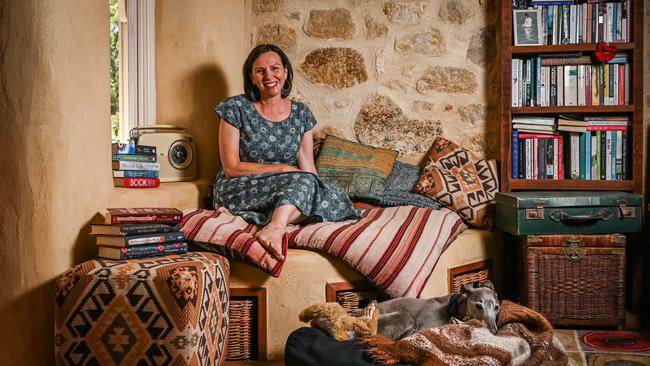
The way she writes her books also never changed.She wrote her first sitting in an Adelaide Hills cafe and has trained herself to write more effectively away from the house. Her first book, One Italian Summer, about her family’s time living and working in Tuscany, was written at home and it didn’t sit well with her.
“It was a really unpleasant experience because I spent more time being disappointed at the end of the day at my lack of diligence than I did feeling I’d had a good writing day,” she says.
She set herself rules.
She would write in a cafe on her laptop but she could not take her first sip of coffee until she had written at least one word.
She abandoned word count goals.
Even Virginia Woolf’s target of 300 words a day was too much.
All she demands of herself is a single word each day, and she is never disappointed.
“I am such an over-achiever now,” she laughs.
She can do research at home, and edit quite happily, but the creative writing must be done in a cafe or, during lockdown, sitting in her car outside a cafe after ordering takeaway coffee by phone. She likes the buzz and feels less lonely than she does at home.
“I am a very introverted person but my favourite place is to be alone in a crowd,” she says. “I feel less lonely at the cafe and I certainly feel less pressure to produce because I’m in my favourite place.
“I was really bad at writing at home, I procrastinate.”
As someone who suffers from dyslexia, Williams has become something of a poster child for the condition.
Her parents made little fuss about it and she was never made to feel it was associated with lower intelligence, which it isn’t.
She applied herself to working around it, which became much easier as computers (with spell check) became the primary method of writing.
She says her dyslexia was never as severe as for some people, but it is significant and it slows her down as a reader which prolongs research.
But she says there are advantages too, and she was thrilled to see that UK spy agencies recruit a high proportion of people with dyslexia because of their facility with patterns and code-breaking.
“The dyslexic brain is particularly suited to storytelling, to problem solving and strategic thinking,” Williams says.
“It’s not just about reasoning; it’s that the dyslexic brain tends to make connections between disparate things, things that are not normally seen as connected.”
She never lacked the confidence to pursue education and praises one teacher who suggested she take her exam orally because the written results did not reflect what the teacher knew about her.
She is proud of her dyslexia and loves talking about it.
“Dyslexia is a function of the (ability to) reproduce symbols, it is not associated with reduced intelligence,” she says.
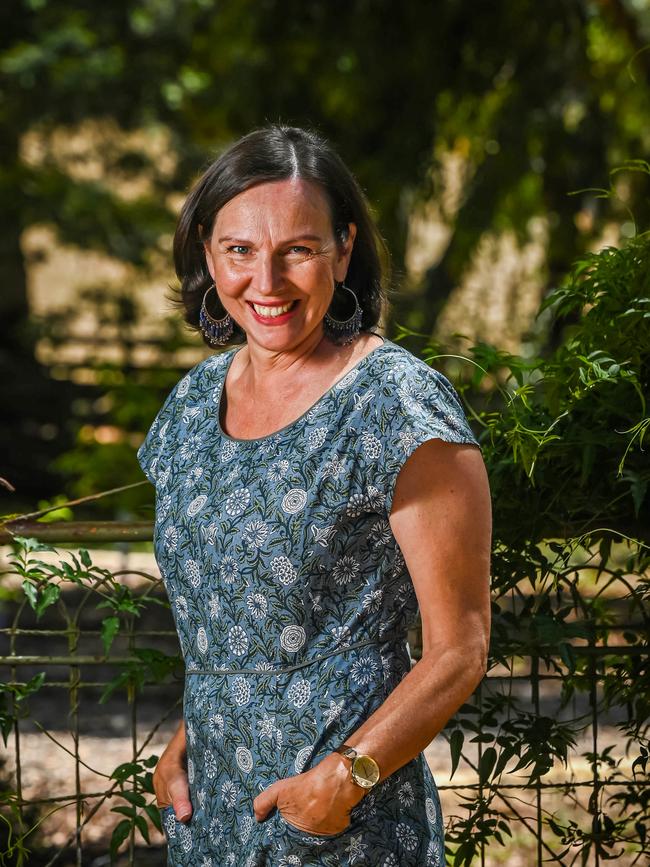
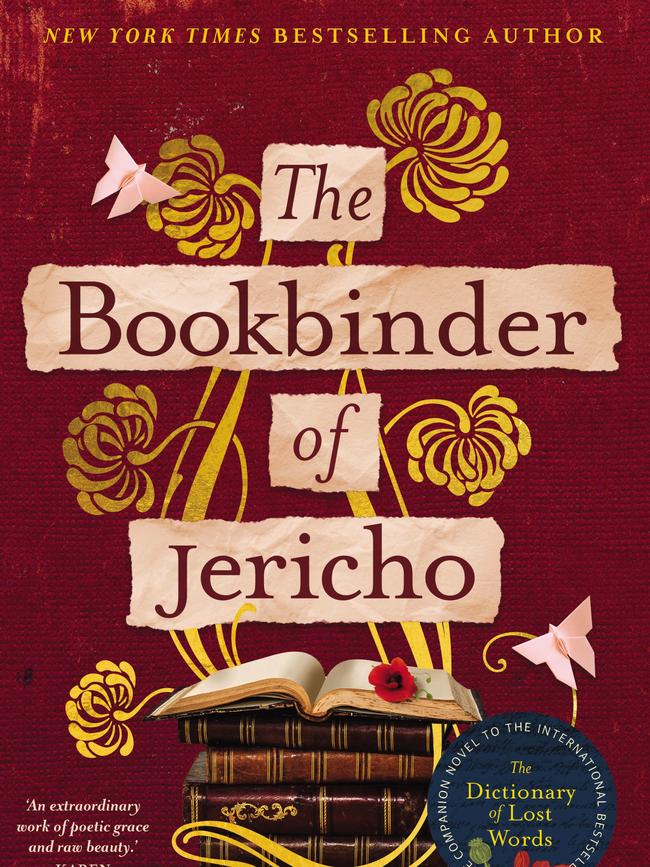
Her expectations of this book are cautious. She just wants people to read it and beyond that she is pragmatic about what happens next.
The runaway success of The Dictionary of Lost Words was associated with a string of serendipitous events, including its release at the very moment that Covid lockdowns hit.
Williams was asked by Affirm Press if she wanted to delay the publication but could see no point. Besides, wouldn’t people want to read more? Her logic was telling her that books would become very important.
A planned four-month book tour was cancelled but she was first off the rank doing Q&As over Zoom, during a magic interval when Zoom was still a novelty and people were looking for different ways of connecting.
She was the second author on the Dymocks series of author events and high up the list of those hosted by other bookshops like Matilda and the Better Reading book club.
She also answered requests from private book clubs because she had the time, and was happy to talk about her work.
“I Zoomed in with a bunch of women from India and culturally it was such an eye-opener,” she says. “They were fascinated by the relationship between Esme and Lizzie, who is a maid in the big house. Their fascination was that all of their children were looked after by a woman like that.”
If she had held library events during those first few months, maybe 20 people would turn up to hear an unknown author.
Instead, about 250 people would Zoom in from home, listen, buy books online and, having read the book, tell their friends.
“I became aware that it was selling well,” she says. “It started to sell thousands of copies, and there was a point some months in when it was still selling a thousand copies a week.
“At Christmas it was selling as much as when it first came out. It just didn’t peter out.”
She is not expecting the same with this one and accepts that some people will like it, and some won’t.
From her perspective, the second book came as easily and she felt as comfortable writing it as she did The Dictionary of Lost Words.
But it is impossible to pinpoint the reasons why her first had the impact it did, including finding its way to Reese Witherspoon to become the first Australian novel she picked up.
She also came to understand that people were responding to the book in ways she had never imagined.
“For some people, what really meant a lot to them were the motherhood themes, and when I was writing I had no motherhood themes in my head,” she says.
“I just wrote characters and lives in a way that I had sympathy for. The motherhood themes meant so much because of their own experience.”
Other people responded to the closeness between Esme and her father, a single parent, because their relationship was depicted in a loving and positive way.
Williams says you will never find her writing about bad men, only bad systems that she inserts her characters into.
“I am interested in good men and I have good men in my books because I am surrounded by good men,” she says.
“I have two sons, a good partner, the most beautiful dad, and I want to represent them on paper.”

